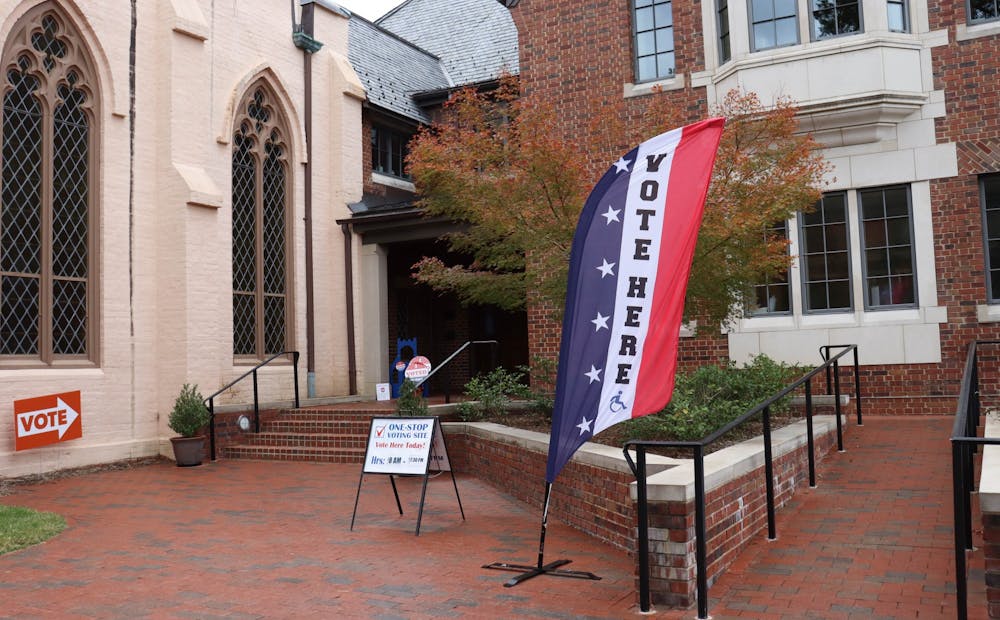The first time UNC sophomore Eleanor Bolton cast a ballot, she faced more challenges than the typical voter.
She said her polling place in Davidson, N.C., was not accessible for people who use wheelchairs, and volunteers didn’t know how to help accommodate voters with disabilities to cast their ballots.
According to Disability Rights North Carolina, people with disabilities can have trouble voting for a number of reasons, including being unable to use assistive technology when they vote because poll workers don't know how to work the accessible voting machine or because the machine is not functioning.
“A lot of times, even though it's required by law that voter and polling locations are accessible, they're really not accessible to everyone and they're not audited in a way that makes sense for every single disability,” Bolton said.
The American Civil Liberties Union found that one in every five people who are eligible to vote has a disability.
Furthermore, data analysis done by professors at Rutgers University estimated that if people with disabilities voted at the same rate as people without disabilities with the same demographic characteristics, there would be about 1.75 million more voters in the United States.
Bolton said it is no surprise that voters with disabilities don’t turn out on Election Day as much as those without disabilities.
“Even where the rules are clear and allow for accessible voting, there is inconsistent understanding and knowledge of those rules,” Corye Dunn, director of public policy for Disability Rights NC, said.
All polling places in North Carolina are required by statute to be compliant with the Americans with Disabilities Act. This includes providing accessible entrances, offering curbside voting, having working voting machines for people with visual disabilities and ensuring there is no prejudice against people with intellectual disabilities.



